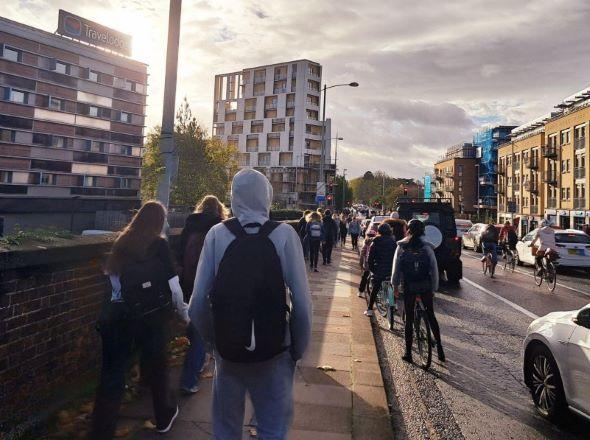
Submitted by Dr Fiorella Del... on Mon, 11/12/2023 - 12:18
During his research talk titled 'SMARTEEE: A Framework for Developing Holistic Socio-Technical Conceptualisations of Smart Urbanism', Dr Will Brown, research associate in urban systems and carbon reduction at the University of Cambridge, discussed his research on smart urbanism, which he developed during his PhD and beyond.
Dr Brown argued that smart urbanism, which uses information and communication technology, the internet of things, and data extraction to enhance cities, runs the risk of further entrenching existing inequalities in urban areas. By pursuing digitally mediated interventions, without a consideration of the social complexities inherent within all cities, smart urbanism can lead to issues concerning expanded surveillance, privatization, and gentrification. He stated that becoming a truly smart city requires a holistic conceptualization of both the technical and social domains.
The assumption that digital technologies can skate above the deep complexities of the contemporary city and fix unique urban issues is a popular but misguided one. To produce truly smart cities, the utilisation of digital technology must be considered in league with other elements of the urban fabric. Dr Will Brown, Research Associate Department of Engineering, University of Cambridge.
Will’s theoretical approach draws from the philosophical works of Martin Heidegger and Roy Bhaskar, which challenge smart urbanism and assert that its essence lies in achieving a set goal through the experience of previously in-experienceable events – for instance a city revealing its air quality through using ‘pm sensors’. The SMARTEEE framework, which stands for eight elements of smart urbanism, was developed by Will to create a framework for elucidating socio-technical conceptualizations of smart urbanism.
The SMARTEEE framework was initially presented and assessed at the 2022 Transdisciplinary Engineering Conference, where it was applied to a socio-technical case study of remote working due to the Covid-19 pandemic. Following the interview data, adaptations and refinements were made to the framework and tool. The SMARTEEE framework serves as a means of elucidating and developing holistic, socio-technical conceptualisations of smart urbanism and binding together the social and technological realms of smart urbanism.
Watch the talk here
